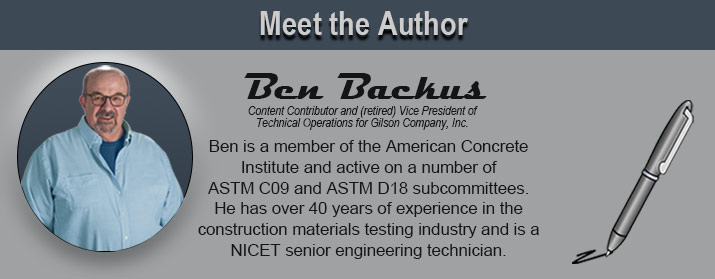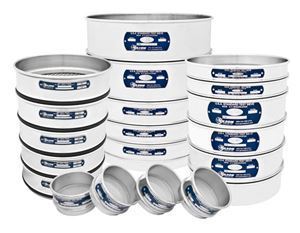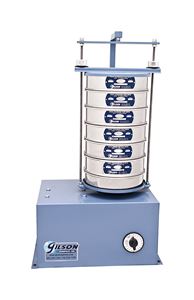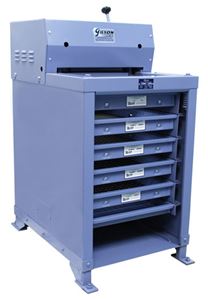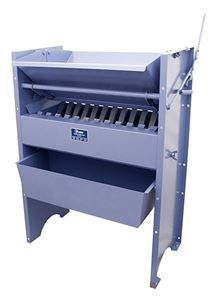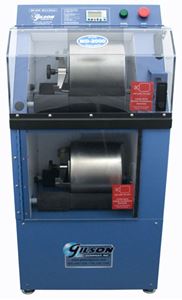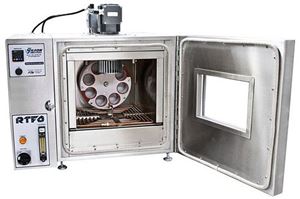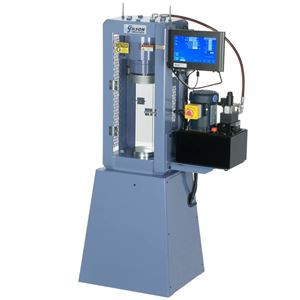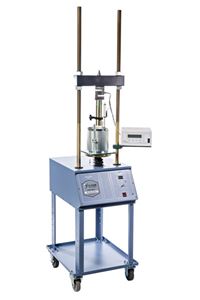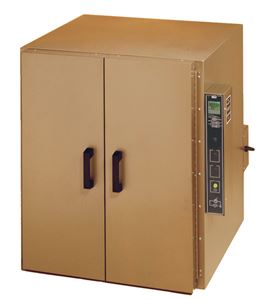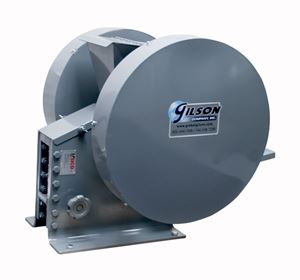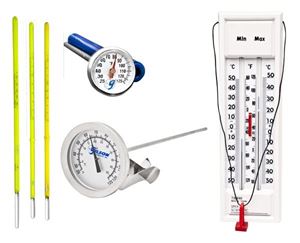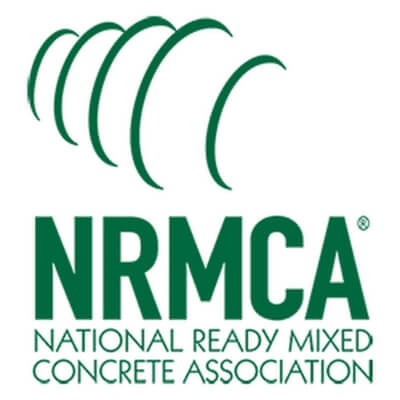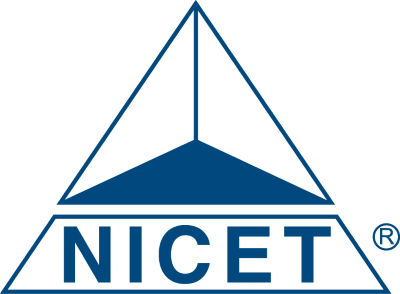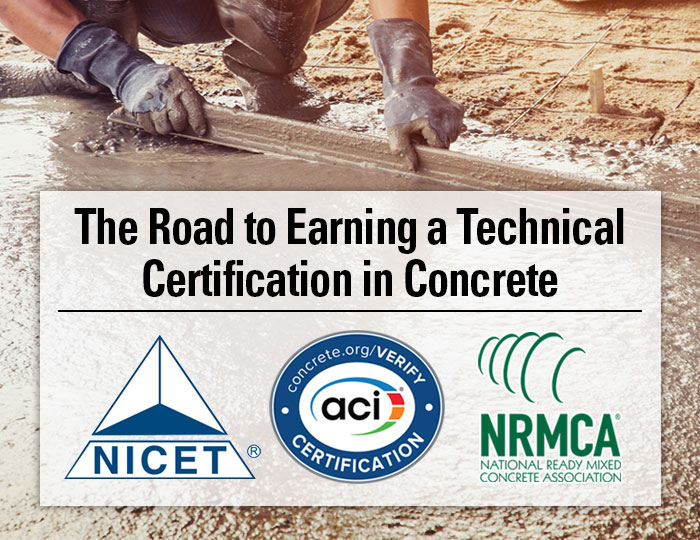
This is the second in Gilson's series of blog posts to help you prepare and test for technical certifications. As stated in the first blog, the three most widely recognized agencies offering concrete certification testing are the American Concrete Institute (ACI), the National Ready Mixed Concrete Association (NRMCA), and the National Institute for Certification in Engineering Technologies (NICET).
This post provides specifics on just some of the different concrete technician certifications available through ACI, NRMCA, and NICET. Additional information and resources can be found in the first blog post in this series, Construction Materials Testing: 7 Things to Know About Certification.
American Concrete Institute (ACI)
The ACI offers many technician certification programs for construction materials testing professionals. Each certification is defined with the scope and knowledge required, including specific ASTM test methods and practices; requirements for certification and scoring criteria; recommended study materials, and ACI certification policies for the particular technician designation.
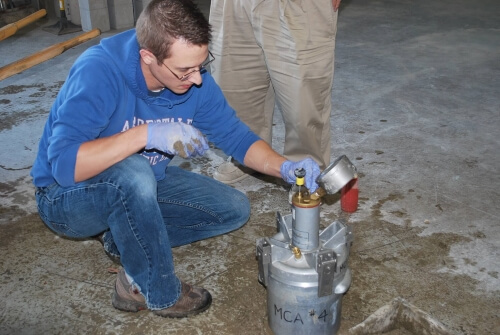 The applicant demonstrates expertise during an ACI certification performance exam.
The applicant demonstrates expertise during an ACI certification performance exam. Photo credit: American Concrete Institute
The table below highlights four popular ACI concrete technician certifications.
| Designation | ACI | Required | Requirements for Certification | Recertification |
|---|---|---|---|---|
Concrete Field Testing Technician - Grade I | Individual who has demonstrated knowledge and ability to properly perform and record the results of seven basic field tests on freshly mixed concrete. | None | A passing grade on ACI written examination and successful completion of performance examination; combined score must be 70% minimum. | Every 5 years; must pass written & performance exams. |
Concrete Strength Testing Technician | Individuals with demonstrated knowledge and ability to properly perform, record, and report the results of four basic laboratory procedures related to the determination of concrete compressive and flexural strength. | None | A passing grade on ACI written examination and successful completion of performance examination; combined score must be 70% minimum. | Every 5 years; must pass written & performance exams. |
Concrete Laboratory Testing Technician - Level I | Individual who has received concurrent certifications as an ACI Concrete Strength Testing Technician and as an ACI Aggregate Testing Technician - Level I. | No experience/training. Concurrent certifications as Concrete Strength Testing Technician & Aggregate Testing Technician - Level I is required. | No exam; certification credentials are automatically issued upon attaining both technician certifications stated in the definition above. | Every 5 years; must pass written & performance exams. |
Concrete Laboratory Testing Technician - Level II | Individuals with demonstrated knowledge and ability to properly perform, record, and report the results of advanced laboratory procedures for aggregates and concrete. | ACI CLTT1 certification and at least one year (2,000 hours) of approved work experience, of which up to one-half may be substituted with a minimum of 60 credit hours of verified advanced education. | Minimum one year (2,000 hours) approved work experience or combination of work experience and education, and Currently certified as Concrete Laboratory Testing Technician - Level I, and Passing grade on ACI written examination and successful completion of performance examination; combined score must be 70% minimum. | Every 5 years; must pass written & performance exams. |
In June 2018, the ACI announced a technician certification, the ACI Self-Consolidating Concrete (SCC) Testing Certification program. This certifies those professionals who demonstrate knowledge and ability to correctly perform test methods for measuring fresh properties of SCC per the following five ASTM standards:
- ASTM C1610: Static Segregation of SCC Using Column Technique
- ASTM C1611: Slump Flow of Self-Consolidating Concrete
- ASTM C1621: Passing Ability of SCC by J-Ring
- ASTM C1712: Rapid Assessment of Static Segregation Resistance of SCC Using Penetration Test
- ASTM C1758: Fabricating Test Specimen with Self-Consolidating Concrete
The certification test includes a closed book written and performance examinations. Certification is valid for five years and requires passing both exams for recertification.
National Ready-Mixed Concrete Association (NRMCA)
The NRMCA offers numerous technician certifications in various designations. Information includes description, scope, and knowledge required, certification requirements, study materials, exam information, and re-examination or recertification criteria. The information page also includes a list of approved sponsoring groups throughout the U.S. that offer training and NRMCA-provided certification exams. NRMCA certifications include:
| Designation | NRMCA Description | Required Experience, Training/ Certification | Requirements for Certification | Recertification |
|---|---|---|---|---|
Concrete Technologist - Levels 2, 3 and 4 | Individuals with demonstrated knowledge and ability to properly perform, record, and report the results of advanced laboratory procedures for aggregates and concrete. |
|
| Every 5 years; must pass a written examination. |
National Institute for Certification in Engineering Technologies (NICET)
NICET provides certification programs for laboratory and field concrete construction professionals with varying skill levels. Specific NICET certification training programs include Construction Materials Testing and Highway Construction Inspection, both offering a progression of skills-based certifications from Level I to Level IV as shown on their information pages.
TECHNICIAN PROFILE FOR CERTIFICATION IN CONCRETE TESTING & INSPECTION ENGINEERING TECHNOLOGY
Education: No formal education requirements. Program content at Level II and above assumes knowledge and skills based on work and/or educational experiences (college, self-study, correspondence courses, workshops, or field assignments, etc.) that develop knowledge equivalent to courses in construction or civil engineering technology or a closely related Associate Degree program coupled with internships.
| Designation | Minimum Work Experience | Level of Responsibility | Typical Activities | Typical Job Titles |
|---|---|---|---|---|
| Level I | None to very limited work experience in concrete testing, QA/QC, inspection, or related activities. | Under direct supervision. | Performs simple, repetitive, specific tasks, measurements, and computations. Document findings. | Technician Trainee |
| Level II | Minimum of two years, of which at least one year must involve concrete testing & QA/QC activities. The balance may be in related activities or other related specialties such as construction inspection and/or other materials testing activities. | Under general supervision. | Perform common laboratory and field acceptance tests. Prepare test reports. | Associate Engineering Technician |
| Level III | Level II work experience plus three additional years. At least three of these years must involve concrete testing & QA/QC as the primary activity. The balance may be in construction and/or other materials testing activities. | Under little or no supervision. May supervise others. | Conduct common and specialized laboratory and field tests. Maintain records. Offer recommendations. | Engineering Technician |
| Level IV | Level III work experience plus five additional years of concrete testing & QA/QC experience involving a broad range of complexity and diversity. | Independent performance, delegated responsibilities, assign tasks and supervise personnel. | Manage projects, oversee specialized laboratory, and field tests. Interact with the project engineer/manager. Recommend corrective actions. | Senior Engineering Technician |
NICET's technician certification process includes passing an exam or exams (Levels I-IV), work experience (Levels I-IV), performance measures (Levels I-IV), personal recommendation (Levels III and IV), and major project write-up (Level IV).
NICET transitioned to the new testing format
It's important to note that NICET changed its Work Element (WE) certification format to a standard model Computer-Based Testing (CBT) in 2017, with the WE component ending December 31, 2017. Applicants now test only through the CBT model. Additional information about the concrete standard CBT is available online.
NICET CBT certification exams are taken at Pearson Vue Testing Centers - applicants enter their zip code to find the nearest center.
Look to state DOTs or universities for certification programs
State Departments of Transportation may offer technician certifications or partner with area colleges. Check out your state DOT website for information, or do an online search for state universities that offer concrete technician certifications. California's DOT has implemented such a partnership with Cal State Long Beach.
Recertification
Recertification through ACI and NRMCA is every five years, while NICET recertifies every three years. With NICET, technicians do not test but apply, accompanied by a Continuing Professional Development Log, and fee. Keep the following in mind when recertifying:
- What is the recertification policy and criteria, including the renewal date?
- How much Continuing Professional Development is required?
- What happens if the certification has lapsed?
Finally, ensure you have the testing agency's current certification materials as the agency, even the industry itself may have changed criteria, regulations, and standards, as changes can affect certification requirements. The ASTM Manual of Aggregate and Concrete Testing, sometimes called, "The Gray Pages", is a good resource.
Gilson Is Here to Help
Contact our testing experts for more information or to discuss your testing application.
Testing Resources
Standard Test Methods, Specifications, and Practices
Individual test methods and specifications referenced in our product descriptions, blog articles, and videos are available for review or purchase from the professional organizations noted.
- ASTM International (American Society for Testing and Materials)
- AASHTO (American Association of State Highway and Transportation Officials)
- ACI (American Concrete Institute)
- State DOTs (Departments of Transportation)
- ISO (International Organization for Standardization)
- BS (British Standards)
- EN (European Standards)
